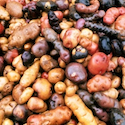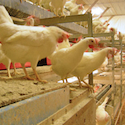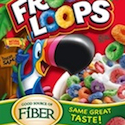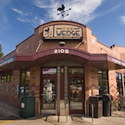Crop Biodiversity: Use It or Lose It
Millions of dollars a year are spent on projects to protect endangered plants – ranging from giant California redwoods to the tiny Marsh Sandwort – but less is spent to protect plants used for food. As a result we fail to consider the importance of wild and domesticated food plants. Consumers in the developed world eat from a smaller and smaller selection of carefully bred and often genetically modified food crops.





